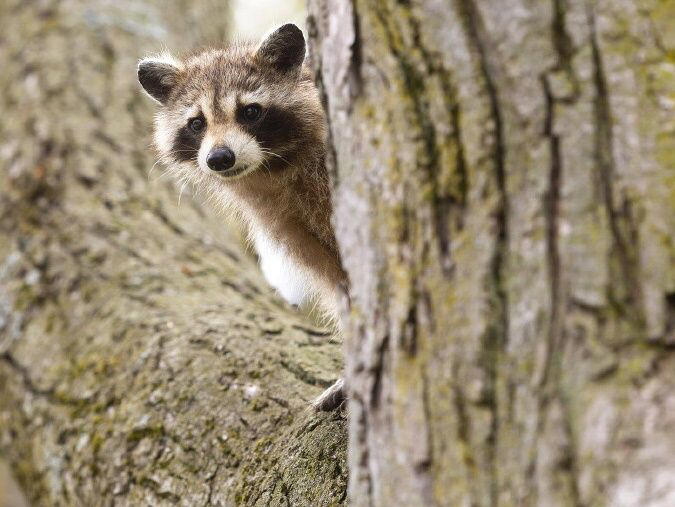Story by Sam Riches •

While initially limited to the countryside, raccoons have increasingly moved into cities like Hamburg, Berlin and Munich
Germany is dealing with a raccoon rampage as the non-native mammals are reportedly robbing homes and cottages in search of food and drink.
According to The Telegraph , raccoons have caused up to $15,000 in damages to some properties, raided kitchens and pantries, killed pets like rabbits and fish, and are drinking beer wherever they can source it.
“Raccoons are funny and clever … and they like beer,” Berthold Langenhorst of the German Nature Conservation Association (NABU), said, adding he’s witnessed the animals deliberately knock over beer bottles to get at the liquid inside.
Raccoons were introduced to Germany in the 1930s and their population has increased by up to 17 per cent annually. It’s now estimated that about a million of the masked marauders call Deutschland home.
While initially limited to the countryside, raccoons have increasingly moved into cities like Hamburg, Berlin and Munich, as they’ve “discovered better food and nicer accommodation,” Ulf Hohmann, a raccoon expert and biologist at Göttingen University, told German publication DW.com .
Germany’s raccoon population is believed to have surged during the Second World War, after a bomb reportedly hit a raccoon farm east of Berlin and the escaped raccoons began breeding in the wild. Now listed as an Invasive Alien Species by the European Union, raccoons are not allowed to be imported, kept, transported, bred or released.
There are also no natural predators for the animals. Hunting raccoons is banned in several German cities, including Berlin, but is allowed in other areas.
Germany’s National Hunting Association (DJV) said it killed a record 200,000 raccoons in 2022 in an attempt to control the population, a significant spike from the 10,000 that were culled annually a few decades ago.
And while their population continues to climb, others have called for humane management methods to curb their growth. These measures include things like fertility control and catch, neuter and release strategies.
In fact, some reports indicate that hunting raccoons has only pushed their populations into new areas and caused them to reproduce at a faster rate.
And while the damage they are causing to homes is not insignificant, humans themselves need not worry as, unlike their North American counterparts, raccoons in Germany aren’t known to carry rabies.
However, beyond economic damage, and the potential peril raccoons can pose to household pets, they also leave behind more than just paw prints.
There is a growing problem with fecal and urine contamination as the animals select areas to act as “communal toilets.” With a new-found taste for beer, that’s an issue that seems likely to get messier.
No comments:
Post a Comment